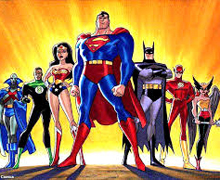By Melissa Moschella | If we hope to protect the unborn, promote sexual integrity, preserve the truth about marriage, and defend the freedom of religious conscience in our country, we cannot simply live good lives—we must live heroic ones.
Perhaps there are times and places in the history of the world in which it is possible to go through life as just an ordinary, good person — a faithful spouse, a loving parent, a concerned citizen, a regular church-goer, an honest and industrious professional — leading a normal, quiet life, not making waves or standing out in any way. Perhaps. But the United States of America in the year 2014 is not one of those times and places. Rather, in our contemporary society, the only way to be good is to be heroic. Failing to act with heroism inevitably makes us complicit in grave evils.
Human life has been seriously devalued in our society. Millions of innocents are cruelly killed before they ever see the light of day. Other children are conceived in ways that reduce them to commodities, in which only the strongest and fittest are given a chance while those passed over are stored in freezers or used for research and killed in the process. There has been a denigration of the great gift of human sexuality into an instrument for hedonistic self-satisfaction.
These trends have brought devastation and tragedy in their wake: deep psychological wounds and physical illness wrought by the hook-up culture; a drastic rise in poverty among single mothers and their children caused by permissive divorce laws and the attitude that sex and babies are completely unrelated; and finally, profound and pervasive harms to children who are the voiceless victims of family breakdown.
In the face of such carnage, too often it is tempting to think that the solution is to retreat from the broader culture, which is sick and dying from a highly contagious moral confusion. For some, the instinct is to try to isolate and save oneself and one’s family from the contagion in a kind of self-imposed quarantine. But, aside from the fact that we have an obligation to help those suffering from this epidemic, retreat simply will not work. The new orthodoxy regarding same-sex marriage will brook no opposition and has already infiltrated public schools and child protection services agencies.
Unless we stay engaged in the broader culture and keep up the fight for the truth about marriage, our future generations may not be allowed to teach their children the truth about marriage—they may find their children taken away from them if they refuse to teach them that there is nothing wrong with a homosexual or otherwise sexually permissive lifestyle. It may sound far-fetched, but it has already happened in states like Massachusetts. Even ten years ago, the prospect of legal recognition of same-sex marriage throughout the country sounded far-fetched as well.
In these circumstances, just being “good” is impossible. We inevitably will be faced with situations in which we must either give in or stand up for our convictions even at great personal cost. There is no “middle way.” Our times call for heroism, and we must be prepared to respond to that call. Many people have done so already.
Modern-Day Heroes
Think, for instance, of Julea Ward. Julea, a devout Christian, was studying at Eastern Michigan University to be a high school counselor. All students in the program are required to do a practicum in which they counsel real clients. Preparing for an upcoming appointment with a new client, Julea reviewed his file and saw that the client had previously been counseled regarding his homosexual relationship. Because she knew that she could not, in good conscience, affirm this client’s homosexual behavior, Julea —perhaps with some trepidation — asked her supervisor what to do. The client was referred to another counselor.
Then came the university’s response: Julea was accused of “unprofessional conduct,” “an inability to tolerate different points of view,” “imposing values that are inconsistent with counseling goals,” and “discrimination based on sexual orientation.” Julea was told that she had three options: go through a remediation program to change her “intolerant” views, leave the program, or request a formal hearing. Unwilling to cave in under pressure and compromise her beliefs, she chose to request a formal hearing. At the hearing, she was questioned relentlessly as the faculty members tried to convince her of the “error of her ways.” While steadfast about her inability to affirm homosexual conduct, she also made clear she harbored no prejudice against those with same-sex attraction. She stated, “I’m not opposed to any person . . . I believe that . . . God loves us all.”
Apparently loving the sinner—and recognizing that we are all sinners—was not enough for Eastern Michigan University. To call homosexual behavior sinful was itself considered beyond the pale. The result of the hearing was that Julea, who had been a straight-A student, found herself expelled from the program. Julea tried to appeal the decision to the Dean, but to no avail. Thankfully, Julea was ultimately vindicated in 2012 after a three-year-long court battle. Others — like the wedding photographer who refused to photograph a same-sex commitment ceremony in New Mexico—have not been so fortunate. But in refusing to compromise her beliefs for the sake of professional success, Julea made a courageous choice, a heroic choice — the kind of choice that any one of us could foreseeably be called to make in the near future.
Consider another example, this time a heroic married couple, Chris and Mary Anne Yep. Chris and Mary Anne have been heroic on many fronts. First, as the parents of ten children, they were extraordinarily generous in their openness to life, even though this sometimes meant that Chris had to work three jobs, including a nighttime paper route, in order to support his young family in the early years of their marriage. As any parents of a large family can tell you, undoubtedly their generosity meant putting up with the judgmental stares and condescending comments of neighbors, friends, colleagues, and medical practitioners. In a society where conventional wisdom holds that parents should give their children more things rather than more siblings, the Yeps have provided a heroic witness to the priceless treasure of human life, a witness for which their children — one of whom was a top student in one of my classes at Catholic University of America last year — are very grateful.
The Yeps’ heroism does not stop there. Frustrated by the lack of family-friendly and person-centered policies in the medical field, the Yeps decided to take a big risk and, with seven young children, liquidated their savings and started a business of their own, a business in which persons really came first. Their company, now called Triune Health Group, has flourished, and has recently been named one of the best places to work in Chicago. From flexible hours and work-from-home options that allow and encourage their employees to put family first, to keeping employees on the payroll when serious illness prevents them from being able to work, to going the extra mile to help their clients—for instance, helping a depressed and discouraged paraplegic find a suitable job and get his life going again—the Yeps have offered powerful and heroic witness to how a commitment to human dignity can and should take pride of place even in the world of business.
Another aspect of the Yeps’ heroism was forced upon them with the passage of unjust laws by the state of Illinois and then the federal government, laws that required them to provide coverage for contraception, sterilization, and abortion-inducing drugs in their employee health plan. In the face of this new challenge to their commitment to the dignity of the human person, the Yeps once again stepped up to the plate to take a courageous stand, suing both the state of Illinois and the Obama administration for violating their First Amendment right to operate their business in accordance with their deeply held beliefs. They are like David, fighting not just one, but two, Goliaths simultaneously. As we await the outcome, we pray that they, like Julea Ward, will be vindicated in the courts. One hopes the respect for religion that the Supreme Court exhibited in its Hobby Lobby decision will decide the fate of the Yeps’ cases as well.
Heroism on Campus
A final example of heroism that I would like to highlight is that of a young woman named Cassy Hough. When Cassy began her freshman year at Princeton in 2003, she was appalled at the crass and permissive approach to human sexuality that was promoted on campus in everything from the quasi-pornographic freshman orientation programming to dorm meetings, course readings, and extracurricular events. Speaking out courageously among peers and professors about her own commitment to sexual integrity, she was met with a lack of understanding and outright disrespect. She eventually found a supportive group of friends, but she soon realized that she could not be content with just preserving herself from the dangers of the hook-up culture.
Seeing the tremendous pressure on her peers to conform to the reigning sexual orthodoxy, and witnessing the hurt, anger, and emptiness that they suffered as a result, Cassy realized that she needed to do something to help spread the message of sexual integrity on campus and offer more students the necessary support to resist the hook-up culture. So she founded a group called the Anscombe Society, named for the philosopher Elizabeth Anscombe, who was a great defender of the true meaning of human sexuality. Princeton’s Anscombe Society succeeded in helping many students understand, defend, and live sexual integrity in many ways, including convincing the university administration to change the content of the freshman orientation program.
Cassy did not stop there. Friends from other universities began to ask her for advice about how to form similar groups on their own campuses, and she realized that a broader organization was needed to support and train student leaders across the country so that they, too, could promote sexual integrity on their campuses. After she graduated, she got a grant to start the Love and Fidelity Network, which has successfully pursued this important mission to the present day. Now the Love and Fidelity Network has groups and student fellows making the case for marriage and family and providing support for sexual integrity at more than twenty-five universities.
Like Julea, Chris and Mary Anne Yep, Cassy, and so many other heroes of our times, we must be prepared to live not just good, but heroic lives. We must be prepared to risk popularity, reputation, professional success, economic well-being, and — it may yet come to this — perhaps even our lives, in order to defend the dignity of human life in all its stages, the value of sexual integrity, the truth about marriage and family, and the right to live in accordance with one’s beliefs in all spheres of life. If, and only if, we are willing to make these sacrifices, we will resist the forces of the culture of death in our own lives, and, with God’s help, transform that culture into a culture of life. May we all heroically rise to this great challenge of our time.
If you found this blog post of interest, you might want to explore these Free Think University courses:
For this third party post in its full context, please go to:
© 2014. The Public Discourse. www.thepublicdiscourse.com



